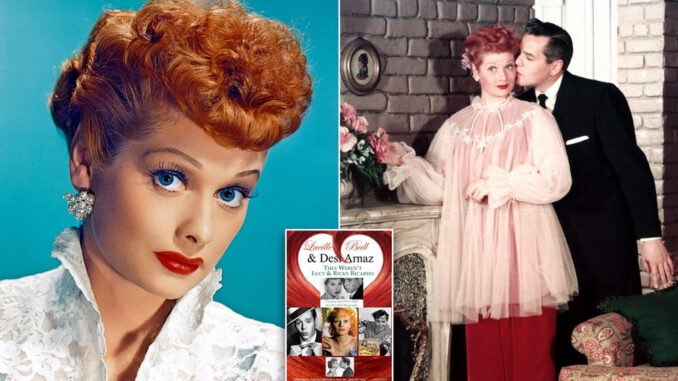
October 15 isn’t just a date circled by fans; it’s a cultural milestone — the anniversary of when a sitcom first aired that forever changed the way stories were told, shows were produced, and audiences connected with television. I Love Lucy (which premiered on October 15, 1951) was never just another comedy. It became a cultural phenomenon whose influence continues to shape television today. Here’s a closer look at why this date matters and why Lucy’s legacy is still celebrated around the world.
1. Why October 15 Matters: A Historic Beginning
On October 15, 1951, the very first episode of I Love Lucy aired, kicking off a series that would become iconic. The show didn’t just succeed as entertainment — it delivered some of television’s most defining moments. Storylines such as Lucy’s pregnancy and the birth of her child became nationwide events, drawing record-breaking audiences. That premiere date has since been adopted by fans as International I Love Lucy Day, a chance to rewatch favorite episodes and honor Lucille Ball’s groundbreaking contributions.
2. Technical Innovation and Production Breakthroughs
I Love Lucy was revolutionary in how it was made. It was filmed on 35mm using a three-camera setup before a live studio audience — combining the crisp look of cinema with the energy of stage comedy. Unlike other shows of its era, which were often broadcast live and preserved only in grainy kinescopes, I Love Lucy was shot on film, ensuring high-quality reruns and paving the way for syndication. Ball and Desi Arnaz, through their company Desilu, also reshaped the business model of television, creating a framework for selling and distributing reruns that is still used today.
3. Redefining Women on Television
Lucy Ricardo was a paradoxical figure: a 1950s housewife archetype who also constantly pushed boundaries, scheming for stardom and breaking social norms through comedy. The decision to write Lucille Ball’s real-life pregnancy into the series was groundbreaking at the time, as American television had rarely addressed the subject so openly. Beyond her on-screen role, Ball was also a producer and later head of Desilu, making her one of the first women to run a major television studio — a milestone for gender representation behind the camera.
4. The Art of Comedy and Creative Legacy
The comedy of I Love Lucy blended physical slapstick with impeccable timing, setting a standard still studied in acting and film schools today. Episodes like the Vitameatavegamin commercial or the Chocolate Factory conveyor belt remain some of the most iconic comedic sequences ever filmed. Supporting characters like Ethel and Fred complemented Lucy and Ricky perfectly, shaping the ensemble formula that has become the blueprint for sitcoms ever since.
5. Influence on Modern Television
From its multi-camera production style to its syndication business model, I Love Lucy directly shaped the DNA of American sitcoms. Shows like All in the Family, Friends, and The Big Bang Theory owe much of their structure — a central character supported by a well-balanced ensemble cast — to the model pioneered by Lucille Ball and Desi Arnaz.
6. The Celebration Today: Fandom in the 21st Century
International I Love Lucy Day is now a global fan tradition. Watch parties, social media tributes, museum exhibits, and retrospectives mark the occasion every year. The Lucille Ball–Desi Arnaz Museum in Jamestown, New York, holds special events, while online communities stream episodes together and share favorite moments. The day also sparks academic interest, as scholars analyze the show’s cultural and gender dynamics, reminding us that I Love Lucy is as much a subject of study as it is a source of laughter.
7. How Fans Can Celebrate October 15
-
Host a viewing party with classic episodes like Lucy Does a TV Commercial, Job Switching, or Lucy Goes to the Hospital.
-
Visit museums or attend online events dedicated to Lucille Ball and Desilu’s legacy.
-
Share your favorite moments or quotes on social media using dedicated hashtags to connect with fans worldwide.
-
Explore books or documentaries about Lucille Ball to gain a deeper appreciation of her impact.
8. Why It Still Matters
Celebrating International I Love Lucy Day isn’t just about revisiting an old sitcom. It’s about honoring innovations in storytelling, production, and representation. It’s about remembering how Lucille Ball broke barriers, reshaped an industry, and proved that comedy could bridge generations and cultures. Above all, it’s a reminder that genuine laughter is timeless — and that Lucy’s laughter continues to unite audiences more than seven decades later.